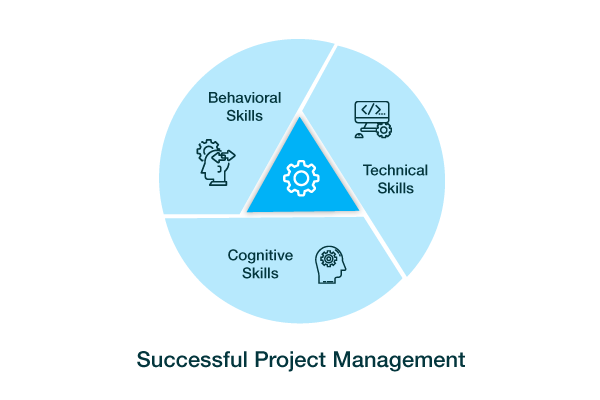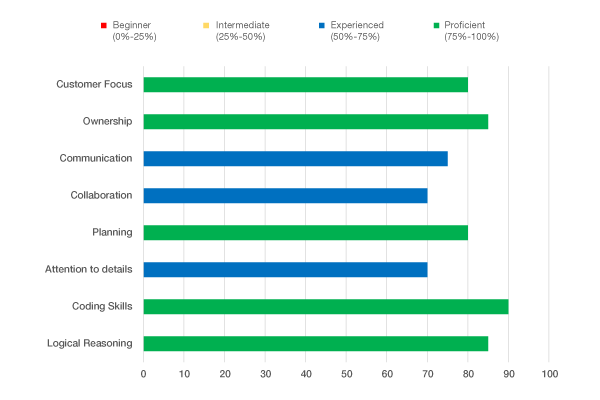Problem: HBR’s (Harvard Business Review) study of the top 100 IT companies indicates a majority of IT services companies are facing two major challenges:
- Customer dissatisfaction: The majority of IT Services company’s customers feel the technology team does not understand the customer perspective and operates in silos.
- Project delays: Most of the IT services projects don’t finish on time. The Team members do not work in a collaborative approach resulting in a delay for project completion.
The root cause for these problems: Changing role of software developers
The role of software developers has completely revamped in the last decade. From operating in silos it has transformed into collaborative consultants. Customers now expect an agile and collaborative approach from them. The developer who used to operate from an ODC (Offshore dedicated center) and interact with customers only during status review meetings is now expected to work closely with project sponsors and stakeholders.
Need for Upskilling for Software Developers
In-line Organizations are conducting massive Upskilling programs to improve the business and cognitive skills of software developers and programmers.

Challenges in Upskilling Existing workforce:
- Time Consuming: Inculcating behavioral skills like collaboration and customer focus takes a minimum of 3 months to translate into behavior.
- Resources and Support: These initiatives need a lot of financial and manpower support from management and mentors to bring change in the working approach.
- Employee Inhibition: Many members who have experience in a specific profile tend to have inhibition to cross skill / Upskill.
- Scalability: Members need to develop a variety of support and learn at their own pace, making it difficult to scale up and implement it across the organization.
Solution: Recruit the right talent by competency-based approach during talent acquisition
HR recruiter and thought leaders in Recruitment recommend to change our approach and evaluate cognitive and behavioral skills during talent acquisition along with technical skills. This approach suggests following the competency mapping process & helps to onboard members who possess the right competencies.
Software developers in today’s agile environment are required to understand client requirements and convert them to the operating program by working in collaboration with customers and stakeholders.
Key competencies along with proficiencies which experts recommend are:
- Technical Skills: Programming Language and Databases
- Cognitive Skills: Logical Reasoning and Attention to Details
- Behavioral Skills: Collaboration and Communication Skills
Want to discover more about competencies and skills? Check out the best 05 competency assessment tool.
Companies can use multiple formats of assessments which include coding challenges, behavioral interviews, and aptitude assessments to assess these critical comptencies. A pivotal aspect of assessing these competencies is the assessment or methodology adopted should be able to quantify the behavioral and cognitive skills accurately. Evaluating these critical skills along with tech skills during talent acquisition will ensure the right competent team formation and help to improve the customer focus and deliver better IT solutions.
Proficiency Matrix for Software Developer – Talent Acquisition:
Software Developers need to have a razor-sharp focus on details and a strong logical approach towards problem-solving. Our research suggests members who are good at planning and take accountability of their allocated tasks are able to deliver better customer value.

Software developers need to be logical in approach, members who pay attention to details are considered to be most successful. A proactive approach to problem-solving is expected for the members. Software developers with better communication skills are able to express their views and establish better connections with customers.
Customer Focused software developers are able to understand customers perspective and deliver solutions which are inline to their requirements and generate better value.
Comparative analysis of traditional and competency-based hiring
The competency approach will improve efficiency and effectiveness of the talent acquisition process and will help to hire rock star developers via systematic evaluation in a very quick time. Below table indicates comparative analysis of traditional and competency-driven approach:
| Traditional Approach | Competency Approach |
|
Manual : Programming contest + Interview |
Systemic evaluation + Interview |
|
Competencies Evaluated
|
Competencies Evaluated
|
|
Selection Ratio: Interview efficiency 1 member in 10 applied |
Selection Ratio: Interview efficiency 1 member in 4 applied |
| Time consumption: High | Time consumption: Low |
| Scalability: Low | Scalability: High |
| Person Dependent | Process Dependent |
| Economics of Scale: Low | Economics of Scale: Cost-effective |
Positive impact of Competency Approach
Competency approach will help recruiters to select candidates with better cognitive and business skills. Hiring managers can build a team of developers with excellent customer focus and collaboration skills. These collaborated and customer-focused team will deliver better customer value which in turn will achieve the below long term benefits -
- Improved Customer Focus and Satisfaction
- Improved Project Performance & Deliveries
I would like to know if you have ever implemented a competency approach while hiring a software developer. What is your experience while implementing this approach? Write to me at kshitij@imocha.io.

